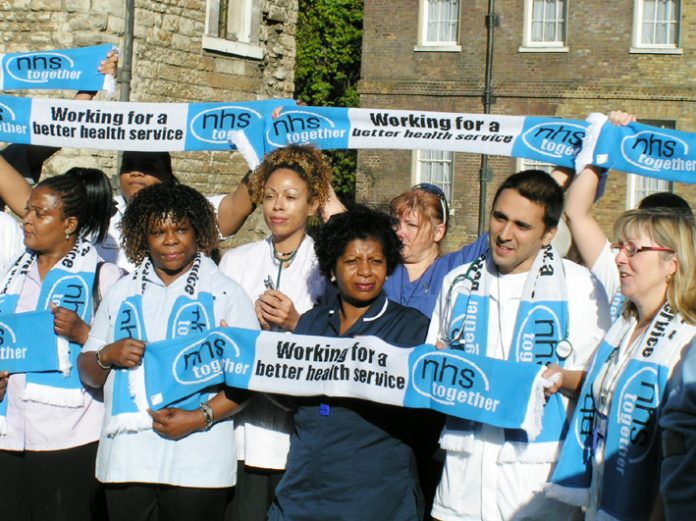Health campaigners, the British Medical Association (BMA) and the Royal College of Nursing (RCN) yesterday accused the government of wasting millions of pounds of NHS money on financial ‘hit squads’.
One in four NHS Trusts has had high-flying financial management consultants sent in by the government to ‘tackle’ deficits.
The number of ‘turnaround teams’ sent into Trusts has soared to 143, up from the 18 announced in January.
The NHS in England is set to spend £172m this year on external management consultants, a rise of 83 per cent in two years.
Alex Nunns, of the Keep Our NHS Public campaign group, said: ‘In some cases the money paid to consultants is more than the actual deficit. It seems absurd.’
A BMA spokeswoman added: ‘We don’t think it’s a good use of NHS money, it’s a waste of valuable energy and resources. The solutions they come up with are often not helpful.’
RCN head of policy Howard Catton told News Line: ‘Some of the fees reported are extremely high.
‘We also have concerns that there is not clinical involvement in decisions that affect the re-organisation or reduction in staff.’
At the same time, the ‘Evercare’ case management system for older patients – a key element of government community care policy – fails to reduce emergency admissions, emergency bed days or mortality, a British Medical Journal study revealed yesterday.
The system, provided by private contractor UnitedHealth Europe was piloted in nine sites in England between 2003 and 2005, and has since been rolled out across England as one of the main elements of the Community Matron policy.
Case management aims to improve patient outcomes, and in particular to reduce unplanned hospital admissions.
In England the Evercare sites selected patients on the basis of patients’ age (65 years and over) and a past history of emergency admissions.
Under the system Advanced Practice Nurses deliver a form of comprehensive geriatric assessment and draw up an individualised care plan which is agreed with the patient, GP and other staff. Patients are then monitored at a frequency best suited to their condition.
Researchers from Manchester carried out a qualitative and quantitative evaluation of the Evercare pilots and analysed the rates of emergency admission, emergency bed days and mortality in 62 Evercare practices.
They found that the Evercare system had no significant impact on rates of emergency admission, bed days or mortality.
An accompanying editorial says that following an interim review of the Evercare system, published in 2005, ‘there was criticism about the failure to fund a proper control study design beforehand, the cost and use of public funds (over £4m) with much of that going on travel, consultancy fees and training, and further national investment in a systematic case management approach across England without convincing evidence’.
The researchers predict the same outcome from the newly introduced Community Matron policy.
‘Community matrons are likely to prove popular with patients and increase access to care, but they are unlikely to reduce hospital admissions unless accompanied by more radical system redesign’, they conclude.
